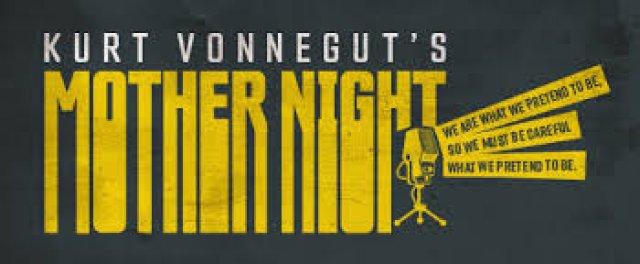Kurt Vonnegut at 59E59 Theaters
Brian Katz Adapts Mother Night for the Stage
By: Rachel de Aragon - Oct 30, 2018
Brian Katz' adaptation and direction of Kurt Vonnegut's Mother Night puts the infernal specters of WWII on the stage at 59E59 Theaters. It is produced by The Custom Made Theatre Company with Executive Producers William & Ruth Isenberg and Leah Abrams, and Producer Jay Yamada.
We find ourselves witnesses to the conscience of an American born-German playwright Howard W. Campbell, (Gabriel Grilli), who has spent his youth in Germany writing propaganda for the the Third Reich. This is a romance and a spy story, a plot with love and surprise twists, but is not one that trivializes the truth. We begin as he is completing his confessions to be given to the legal authorities in Jerusalem. He is a prisoner, accused of crimes against humanity.
The set consists primarily of his table and typewriter, slightly elevated and recessed from center stage. His reflections play out in front it. Grilli is both the narrator and protagonist as the non-linear time line brings us from childhood to his incarceration. The piece is less about his troubled conscience than about the nature of living as someone he is not.
Campbell has in fact been recruited to work as a double agent by OSS Officer Wirtanen (Andrea Gallo), secretly sending coded messages within his pro-Nazi broadcasts. Of course this role is known to no one, and must remain so. But he has also been a well known Nazi propagandist, speaking out violently against Jews, willfully undermining the Allied war effort, and reaping the benefits of his well respected position within German society. Married to a famous stage actress, Helga (Trish Lindstrom) and highly regarded by the public, Campbell has used himself as a mouth piece for evil. Vonnegut warns us to be careful of who we pretend to be.
For Campbell there is only one emotional reality, the “nation of two” represented by the passionate love between him and his wife. Can it mean more than loyalties of nations and politics? Can art and romanticism block out evil?
His wife dies. The war ends, and Campbell is spirited out of Europe by his American employers, to a small apartment in New York. And yet for many he is still that Nazi broadcaster who expounded the beliefs of Hitler's government. An American Christian white nationalist (Eric Rice), a Russian agent (Dave Sikola), an American Veteran (Darred Wright) and an Auschwitz survivor (Gallo) all recognize the him for who he was. Each of these witnesses to the horror that was Hitler's Third Reich has a reason to see Campbell as the embodiment of that regime. For them he is what he was “pretending” to be.
The cast of six move with fluidity and conviction through the phases of Campbell's life portraying the characters from friends in Nazi high command (Sikola) to the man next door in a New York apartment building. Wright fills the stage with the rage of the American veteran O'Hare, and with the hollow boasts of the Lithuanian, now Israeli prison guard who has saved himself by pretending to be a Nazi. Mathew van Oss is moving in his portrayal of a new generation who does not know and/or chooses to forget the burden of the Holocaust as he plays both a Jewish-American doctor in New York, and a boyish prison guard in Jerusalem who has never been outside of Israel.
Katz remains true to Vonnegut's words, and most strikingly to his tone. As a director he seems to move within the post-war existential vision in which behavior not 'personality' characterize the self. This approach works well with the set and with the pacing of the production.
Vonnegut, himself an American WWII veteran, always brings his own experiences of war to inform ours. We are asked, as Americans to look at who we are and what we may pretend to be and to examine our roles in aiding and abetting the spread of fascist propaganda. In the end, Campbell adjudges himself guilty --- guilty of being what everyone knew him to be.

